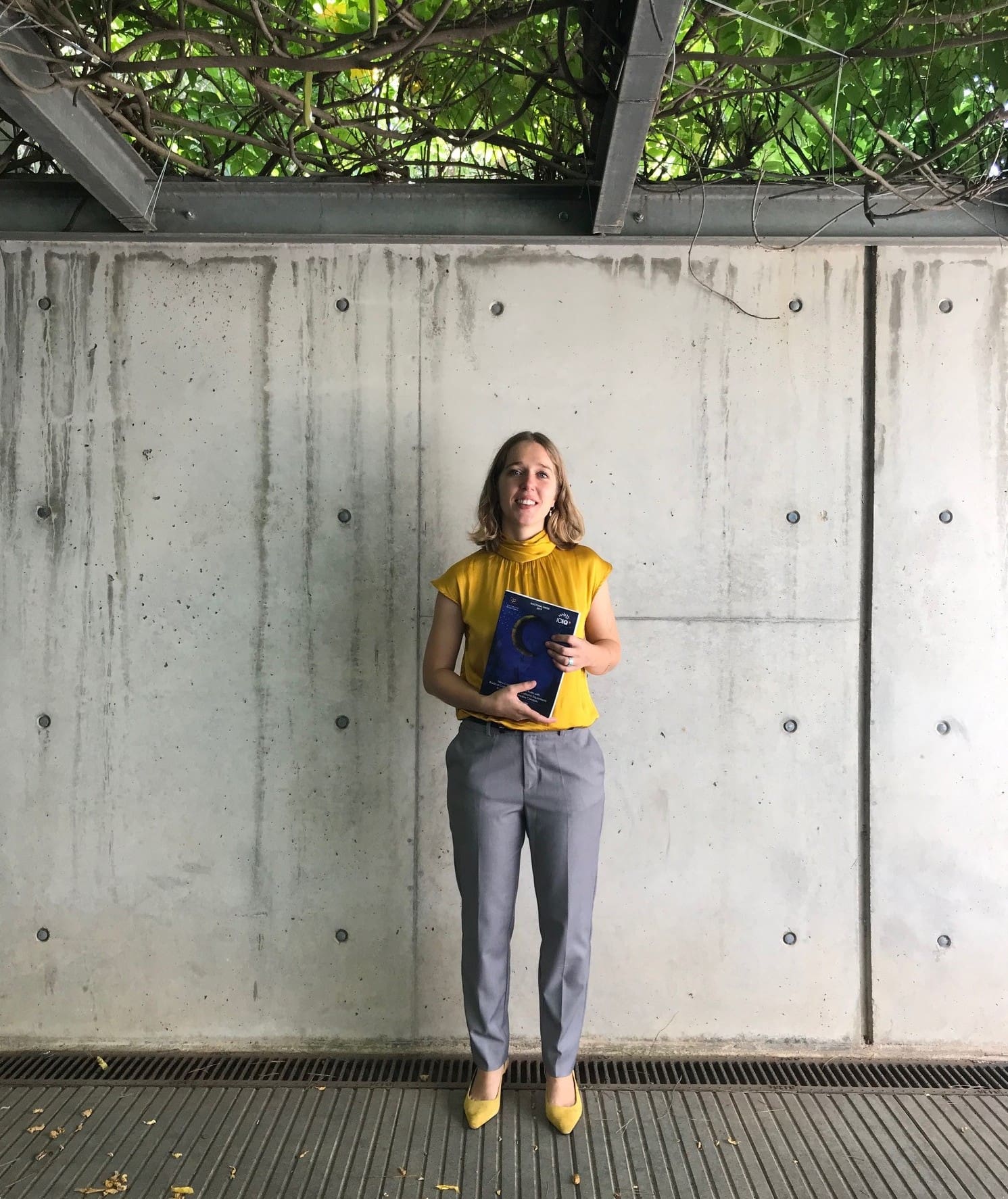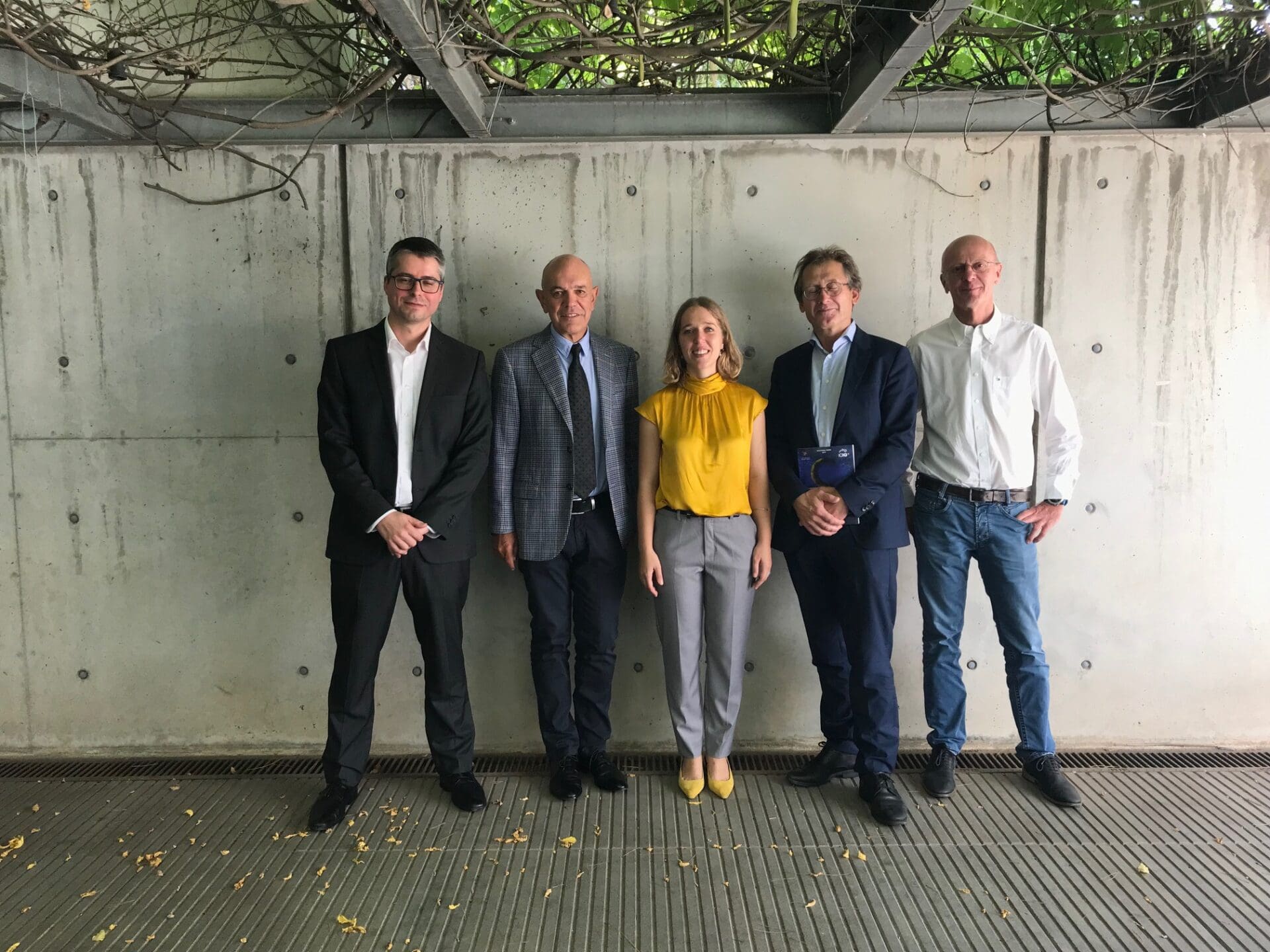New Doctor at ICIQ: Ana G. Herraiz
Ana G. Herraiz, PhD student under the supervision of Dr. Marcos García Suero (ICIQ), has defended her PhD Thesis entitled “New Carbon Reactivity Rules with Radical Carbenoids and Carbyne Equivalents Enabled by Photoredox Catalysis” (assigned to the Department of Analytical and Organic Chemistry of the Universitat Rovira i Virgili) publicly on September 20th at the ICIQ Auditorium.
The members of the examining committee were: Prof. Ben L. Feringa (University of Groningen), Prof. Philippe Renaud (University of Bern) and Prof. Antonio M. Echavarren (ICIQ).
Dr. G. Herraiz is from Sisante, a small village in La Mancha. She studied Chemistry at the Complutense University of Madrid, which included an Erasmus in University of Groningen where she obtained her master’s degree. Dr. G. Herraiz then moved to ICIQ to pursue her PhD studies. In the four years she has spent in Tarragona, she has enjoyed spending time outdoors with her friends.
Why did you become a scientist? What would you want to achieve as a scientist?
When I was at school, I always gravitated towards scientific subjects, although for some time I mulled over studying chemistry or architecture. I was finally drawn towards chemistry because I liked being part of the scientific community. I think it’s in the hands of scientists to help solve humanity’s biggest problems and I’d like to contribute solve them like, for example, by discovering new drugs to combat resistant bacteria.
From the lessons learnt at ICIQ, which one do you value the most?
ICIQ PhD students receive a lot of training which I think is of great value. I was fascinated by a training session we had on “How to give scientific presentations.” The trainer’s background – among others, there was an actress and a theatre director – provided a different viewpoint which really helped us develop and improve our communication skills.
What ICIQ funny moment you´ll never forget?
When together with my labmate Dr. Ana M. del Hoyo we taught Dr. Zhaofeng Wang dance reggae (not reggaeton, which is forbidden in our lab).
What advice do you have for students who are starting their PhD now?
To think deeply about the topic of their project and to choose a topic they are passionate about. Pursuing a PhD can be hard, so dedication and not being afraid of making mistakes are also key.
Where are you going next?
I’m going to join Nicolai Cramer’s group in EPFL (Switzerland) for a postdoc. My research will focus on discovering new reactions in the field of asymmetric catalysis with transition metals. And in my free time, I plan to explore the Alps!
If you were a lab instrument which would you be?
Nothing fancy, a thin-layer chromatographer (TLC): a simple and extremely useful way of knowing how a chemical reaction is progressing.
Related news

Let's create a brighter future
Join our team to work with renowned researchers, tackle groundbreaking
projects and contribute to meaningful scientific advancements








 20-12-2024
20-12-2024 


















